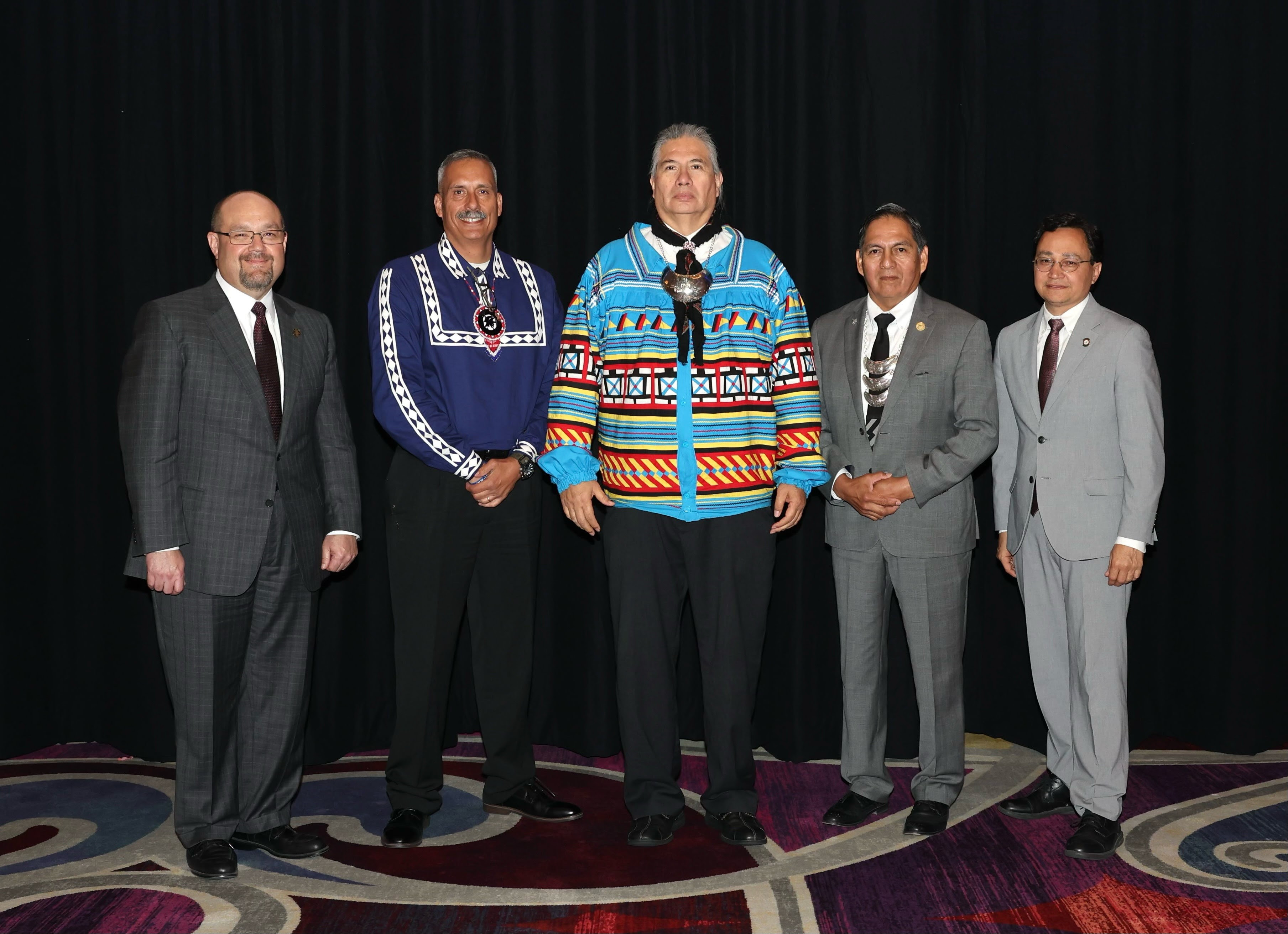
- Details
- By Chickasaw Nation Media
THACKERVILLE, Okla. – The Inter-Tribal Council (ITC) of the Five Civilized Tribes passed a resolution urging the Federal Communications Commission (FCC) to establish a specific event code for missing and endangered persons at their quarterly meeting April 19 at WinStar World Casino and Resort.
MMIP. “First American men and women have historically been disproportionately affected by missing person cases, with First Americans constituting 2.5% of all missing persons cases despite comprising only 1.2% of the U.S. population, as reported by the National Crime Information Center, underscoring the urgent need for targeted measures,” the resolution reads. “First American women are at an even greater risk of going missing or being, Endangered, with estimates suggesting that they are ten times more likely to fall victim to homicide than the average American woman, emphasizing the urgent need for focused attention and specialized support.”
While the FCC maintains the list of approved event codes, the resolution says current codes do not account for this unprecedented situation regarding missing and endangered Indigenous persons, and calls for a new code for this purpose.
The resolution said doing this, “would guarantee that these cases receive the alerting attention over the nation’s Integrated Public Alert and Warning System (IPAWS) to enhance the efforts to address the murdered and missing Indigenous peoples’ crisis.”
The resolution stems from a letter from Native Public Media, who also sponsored a resolution passed last year by the National Congress of American Indians (NCAI).
The ITC passed five resolutions at their quarterly meeting, including:
- Resolution 24-03 – A Resolution Urging the Federal Communications Commission to establish a specific event code for Missing and Endangered Persons
- Resolution 24-04 – A Resolution Supporting a Permanent Tribal Waiver from the Build America, Buy America Act
- Resolution 24-05 – A Resolution Urging the United States Department of Agriculture to Support the Expansion of Self-Determination and Self-Governance Authority Throughout the Agency
- Resolution 24-06 – A Resolution Urging the Indian Health Service to Continue Funding Housing Projects
- Resolution 24-07 – A Resolution Commending Oklahoma Advisory Council on American Indian Education and Supporting Initiatives to Promote American Indian Education Taught in Oklahoma Schools
More Stories Like This
Native News Weekly (August 25, 2024): D.C. BriefsUS Presidents in Their Own Words Concerning American Indians
Haaland Meets with Southern New Mexico Law Enforcement on Public Safety Priorities
This Day in History – Dec. 26, 1862: 38 Dakota Men Executed by Order of Abraham Lincoln
Merry Christmas 2025
Help us defend tribal sovereignty.
At Native News Online, our mission is rooted in telling the stories that strengthen sovereignty and uplift Indigenous voices — not just at year’s end, but every single day.
Because of your generosity last year, we were able to keep our reporters on the ground in tribal communities, at national gatherings and in the halls of Congress — covering the issues that matter most to Indian Country: sovereignty, culture, education, health and economic opportunity.
That support sustained us through a tough year in 2025. Now, as we look to the year ahead, we need your help right now to ensure warrior journalism remains strong — reporting that defends tribal sovereignty, amplifies Native truth, and holds power accountable.
 The stakes couldn't be higher. Your support keeps Native voices heard, Native stories told and Native sovereignty defended.
The stakes couldn't be higher. Your support keeps Native voices heard, Native stories told and Native sovereignty defended.
Stand with Warrior Journalism today.
Levi Rickert (Potawatomi), Editor & Publisher

